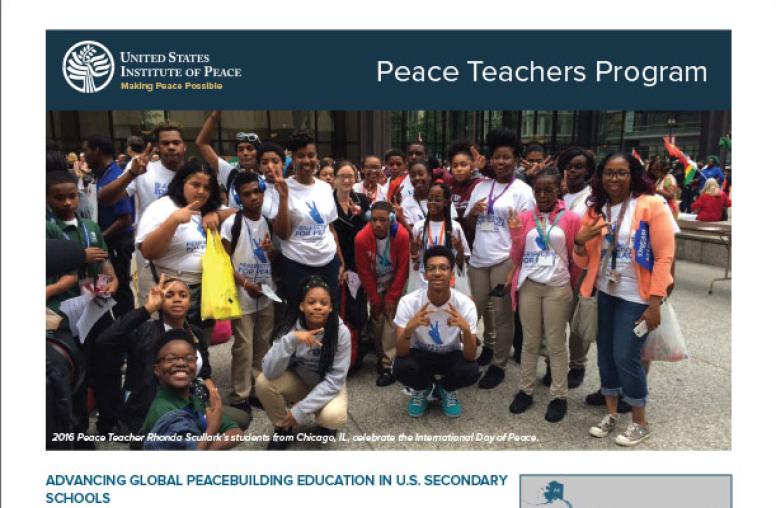The Arab-Israeli Peace Process: Why It’s Failed Thus Far
The Arab-Israeli peace process has failed for 16 years, in part because past presidents have either been “over involved” or “under involved,” according to foreign policy scholar Aaron David Miller. “We have not yet found the right balance for American diplomacy,” he said at a USIP event on the peace process Nov. 2, one of several panels that focused on the prospects for peace in the Middle East.
Miller appeared on a panel moderated by the PBS Newshour’s Margaret Warner that included Daniel Kurtzer, a senor member of the U.S. delegation to the Madrid Conference, Samuel Lewis, a former ambassador to Israel, and Shibley Telhami, from the University of Maryland.
The daylong event at USIP headquarters in Washington – “Twenty Years after Madrid: Lessons Learned and the Way Forward for Arab-Israeli Peacemaking,” came days after a controversial vote in Paris by UNESCO to allow Palestine full membership to the organization against the strident opposition of Israel and the United States. Also that week, Israel announced that it would accelerate settlements in contested areas of East Jerusalem and the West Bank.
The reasons for peace settlement pessimism were many among the experts who assembled at USIP. But most are political. The American presidential election in 2012 and the election in Israel, expected in 2013, means little will likely get done. And, Miller believes it’s not practical to expect a peace deal given everything else on President Barack Obama’s plate – withdrawal from Iraq and Afghanistan, a debilitating debt crisis and struggling economy, dependence on hydrocarbons and a decaying infrastructure.
“Governing is about choosing, about choosing priorities,” Miller said. “Not every president can have everything.”
And if the Israeli elections occur on time on 2013, that potentially forestalls any substantive work on peace in the Middle East until sometime after that.
All of this is a long time since Oslo, when there was momentum in the air, and optimism about a roadmap for peace. The Oslo Accords, marked by a handshake between PLO Chairman Yassir Arafat and Israeli Prime Minister at a White ceremony in September 1993 gave rise to the notion that peace was more than an unachievable ideal in the Middle East.
“I happen to think Oslo was a great achievement,” said Lewis, also a former president of USIP. “It started the process of serious negotiation about details on how to turn some of the territory over to the Palestinians. So Oslo was a big achievement.”
But progress has stagnated ever since. When, for example, top officials emerged from the Camp David Summit in July 2000 with little to show for the effort, President Clinton gave the American officials there a pep talk. “You know, trying and failing is better than not having tried at all,” said Miller, a former advisor to six secretaries of State, remembered Clinton saying. “At the time, I was inspired, but you know, that is not right. That is an appropriate slogan for a college or high school football team. But not for others.”
Miller urged people who want to see the peace process through to give Obama more time—and re-elect him. The time is not right to push for peace now, especially as American isolation grows and our “street cred” plummets internationally. “If we take this on now, in any serious way, we will fail because there is no conflict-ending agreement available right now to Israelis or Palestinians.”
Some believe Congress is culpable in all of this, swayed by Israeli interests that dictate the stalled peace process in which the three parties find themselves. Indeed, it’s “very expensive to go against Israel,” said Telhami.
But Miller pushed back on this notion, saying Congress is not the “Israeli-occupied territory” some believe it has become. “There are no domestic constraints that are powerful enough to handicap or tie down the administration.
But, he said, the alliance with Israel can only go so far. “We are Israel’s best friend, but we cannot be Israel’s attorney.”



